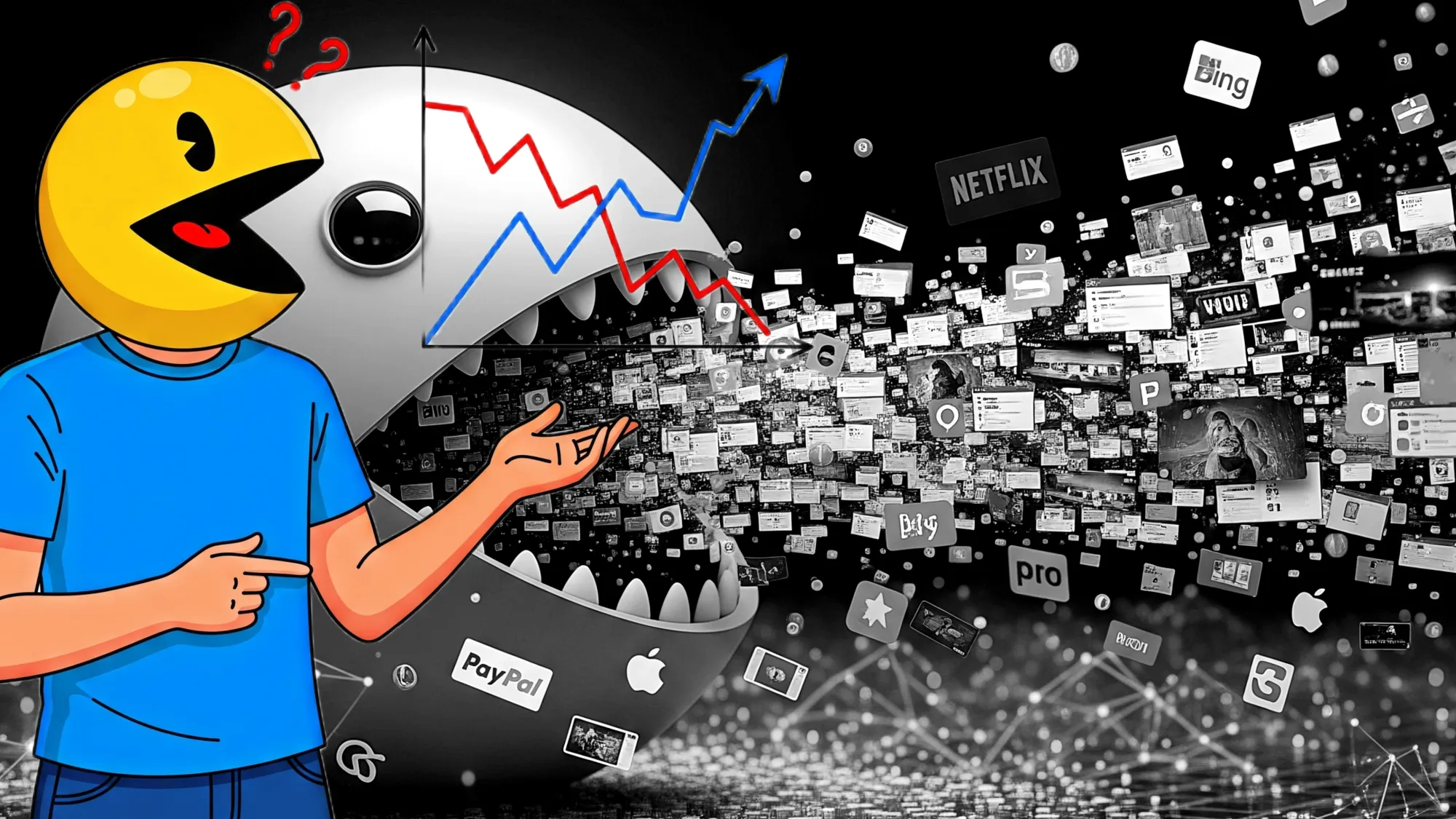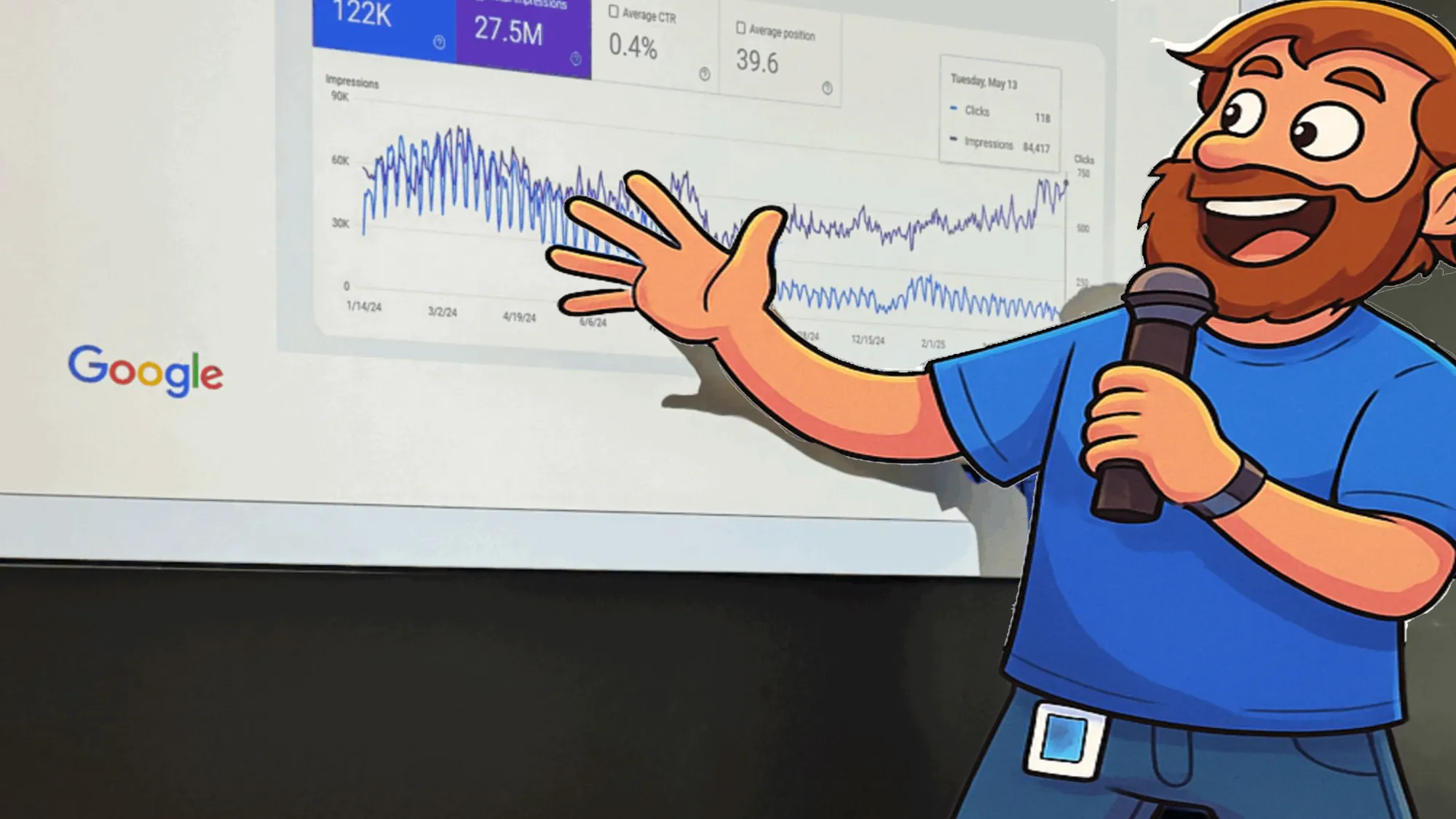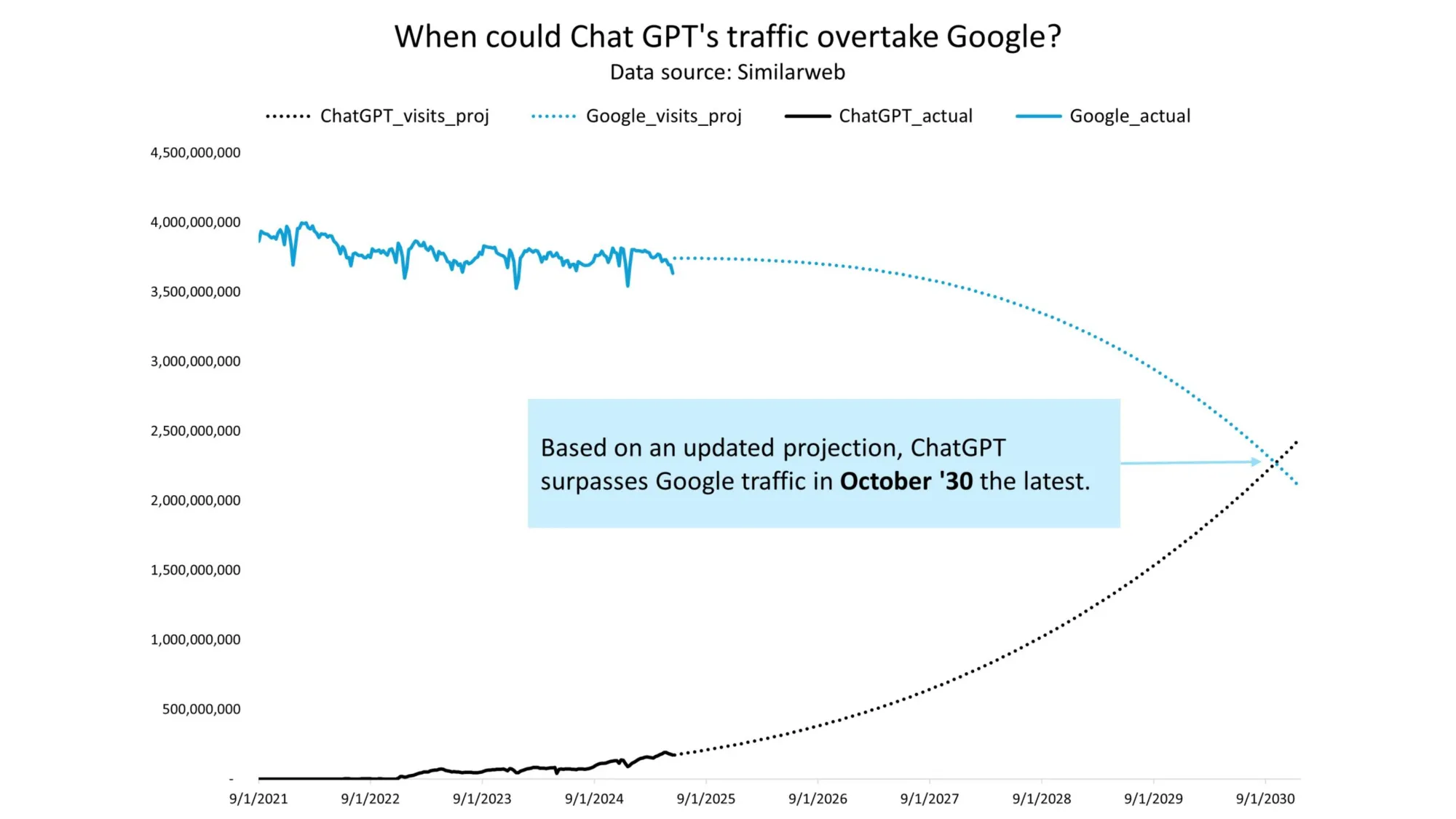Google explains "great decoupling" of search clicks and impressions
AI overviews create unprecedented split between visibility and website traffic as Googler addresses industry concerns.

Martin Splitt from Google addressed the phenomenon known as "The Great Decoupling" at the Google Search Central Live 2025 event in Warsaw on June 17, 2025, marking the first time a Google representative has directly explained the dramatic changes affecting website traffic patterns worldwide.
The term, coined by Darwin Santos and popularized by Barry Schwartz at Search Engine Roundtable, describes the unprecedented separation of search impressions from clicks that publishers have experienced since AI Overviews became standard in Google Search results. According to documented instances across the industry, websites now receive significantly more impressions while experiencing substantial click decreases.

Robert Nowaczyk, who covered the Warsaw event, reported Splitt's acknowledgment that "if things are being shown in AI overviews, you will probably see less clicks." However, Splitt offered a measured perspective: "likely your impressions are going to go up if you are shown in AI overviews or AI mode. Um clicks are likely to stagnate or fall a little bit."
Summary
Who: Martin Splitt from Google, speaking at Google Search Central Live 2025 in Warsaw, with coverage by Robert Nowaczyk and analysis from industry experts including Darwin Santos and Barry Schwartz.
What: Google's first official explanation of "The Great Decoupling" - the phenomenon where website impressions increase while clicks decrease due to AI Overviews providing answers directly in search results.
When: June 17, 2025, at the Google Search Central Live event, with the term initially coined on May 31, 2025, and widespread documentation beginning June 3, 2025.
Where: Initially observed globally across websites in Google Search Console reports, with formal explanation delivered at Google's Warsaw event and broader implications documented across the search marketing industry.
Why: AI Overviews answer user queries directly within search results, reducing the need to click through to websites while still generating impressions for content that appears in both traditional results and AI-generated summaries.
The Google representative suggested potential compensation through improved conversion quality. "But likely this might increase your conversions, which is pretty good, I think," Splitt stated during his presentation. He clarified on LinkedIn that "the clicks you get through search are more likely to be clicks that convert," while acknowledging that some conversions may occur later in customer journeys without direct search attribution.

Industry data supports the scope of this transformation. According to research published by Ahrefs on June 17, 2025, their own blog experienced a dramatic shift in click-to-impression correlation. The platform documented a positive correlation of 0.425 between daily impressions and clicks during late 2024, which reversed to a negative correlation of -0.352 in the first half of 2025.
The pattern extends beyond individual websites. AI-powered search transforms advertising landscape documents how Microsoft research shows conversational search interactions compress traditional customer journeys by 40% fewer touchpoints compared to conventional search methods.
Splitt compared the current situation to historical impression patterns, explaining that years ago, websites received impressions "that lead to nothing" while potentially missing ones "that might have lead to something." He positioned the current changes as an evolution rather than a fundamental break from past search behavior.
The timing coincides with Google's aggressive AI Overview rollout. According to Ahrefs' analysis, AI Overview presence doubled by 116% following the March 2025 Core update, corresponding precisely with when these "crocodile mouth" traffic patterns emerged across publisher accounts.
Research published by Kevin Indig and Eric van Buskirk on May 12, 2025, revealed that most users only read top third of Google AI Overviews, with median scroll depth reaching just 30% of AI-generated content. The study tracked 70 users across eight search tasks, documenting how 88% clicked "show more" to expand AI Overviews despite limited consumption of the extended content.
For content creators and publishers, the implications extend beyond traffic metrics. As noted in research showing AI search visitors worth 4.4x more than traditional organic traffic, the quality of remaining traffic may compensate for quantity reductions. However, this conversion argument primarily applies to e-commerce websites rather than advertising-supported content platforms.
The shift particularly affects informational websites dependent on page view monetization. Splitt's comments about improved conversions address e-commerce scenarios but offer limited relief for publishers whose revenue models rely on visitor volume rather than direct sales conversions.
Technical measurements confirm the pattern's consistency. According to Ahrefs' analysis using their new AI visibility tool Brand Radar, websites can now track over 19,000 keywords triggering AI Overviews while including their content in top ten results. Cross-referencing this data with citation appearances reveals which keywords contribute to impression inflation without corresponding click generation.
The phenomenon represents more than temporary adjustment. Google's development of AI Mode as a potential default search experience suggests permanent structural changes to search interaction patterns. Google announces expansive AI advertising features at Marketing Live 2025 indicates the company's commitment to integrating advertising directly into AI Overview responses, serving over 1.5 billion users monthly.
Publishers report varying impacts across content types. Sites with minimal AI Overview presence maintain traditional correlation patterns between clicks and impressions, according to data shared by Ahrefs' Patrick Stox. This correlation suggests the decoupling specifically relates to AI Overview integration rather than broader algorithmic changes.
Get the PPC Land newsletter ✉️ for more like this
The timing of Splitt's comments reflects growing industry pressure regarding traffic impacts. Barry Schwartz noted hundreds of similar Google Search Console screenshots shared across social media platforms, indicating widespread experience of the pattern. Darwin Santos' term "Great Decoupling" has appeared in "tons of SEO presentations, blog posts and social media shares," according to Search Engine Roundtable coverage.
LinkedIn discussions following the Warsaw event reveal continued concern among digital marketing professionals. When asked how Google can verify conversions occurring later in customer journeys without search involvement, Splitt acknowledged making "an observation" based on "a remark someone recently made in a chat I had during an event" rather than citing specific data.
The phenomenon affects measurement and attribution systems across the industry. Microsoft declares traditional web dead as agentic systems emerge outlines how autonomous agent interactions eliminate traditional web-dependent marketing mechanisms, suggesting broader transformation beyond Google's immediate changes.
Industry analysts project continued evolution. Research indicates digital marketing topics may generate more visitors from AI search than traditional search by early 2028, though this timeline could accelerate if Google implements AI Mode as the default experience.
The changes require strategic adjustment across marketing organizations. Google ads in AI Overviews demonstrates how existing Search and Shopping campaigns automatically become eligible for AI Overview placement, requiring no additional advertiser setup while potentially reaching users with higher purchase intent.
Timeline
- May 31, 2025: Darwin Santos coins "The Great Decoupling" term on social media
- June 3, 2025: Barry Schwartz documents widespread pattern in Search Engine Roundtable coverage
- June 9, 2025: Multiple SEO consultants publish analyses of impression-click divergence patterns
- June 17, 2025: Martin Splitt addresses phenomenon at Google Search Central Live Warsaw
- June 18, 2025: Search Engine Roundtable publishes Googler's explanation
Related Stories
- AI-powered search transforms advertising landscape - Microsoft research reveals 53% higher purchase rates through conversational search
- Google announces expansive AI advertising features at Marketing Live 2025 - Integration of ads directly into AI Overviews serving 1.5 billion users monthl
- Most users only read top third of Google AI Overviews - First comprehensive UX study reveals 30% median scroll depth in AI-generated content


